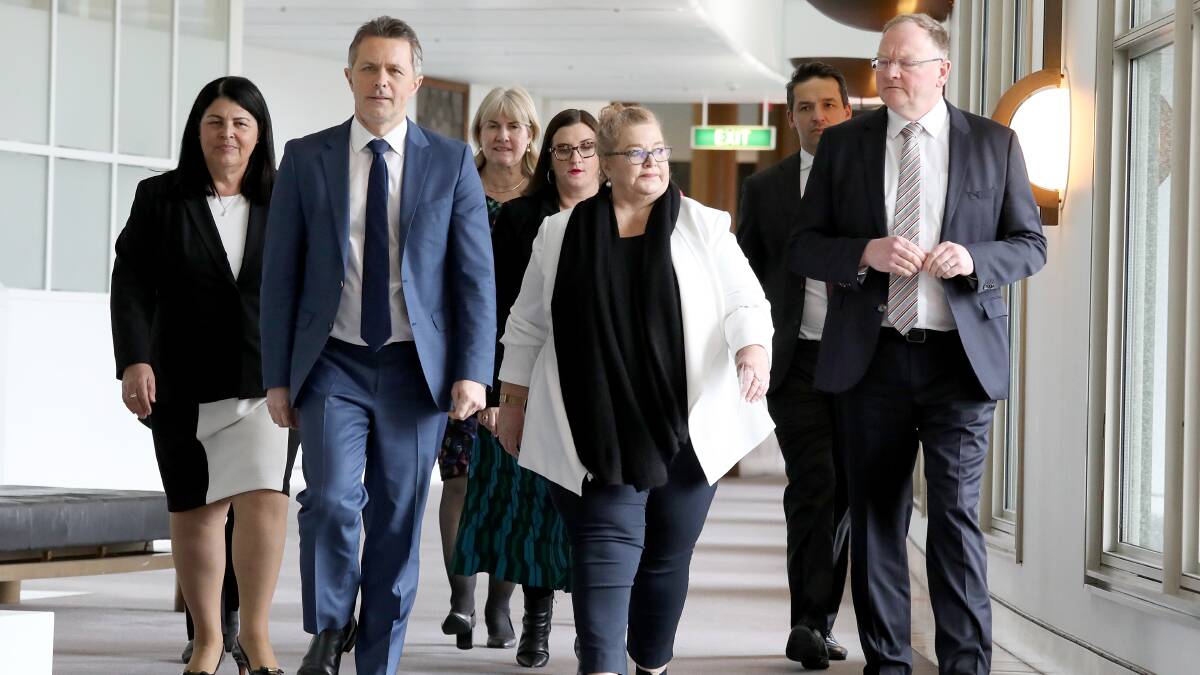Australia's education ministers are hoping to "tick off" on a priority national action plan to address the nation's teacher shortage crisis by year's end, with Federal Education Minister Jason Clare describing teacher education as "screaming out for reform".
Subscribe now for unlimited access.
$0/
(min cost $0)
or signup to continue reading
There were new ideas floated such as fast-tracked citizenship for highly-skilled teachers, as Mr Clare and his state and territory counterparts met teachers, principals, unions and school representatives over two hours on Friday at Parliament House.
They say there were tears as they heard confronting stories of overwork, sometimes up to 70 hours a week, but they also listened to rewarding accounts of teaching and bizarre anecdotes of duties such as clearing dead kangaroos off school ovals.
"I think collectively we got an enormous amount out today," Mr Clare said. "We do want to fix this. This is a big deal. This is a massive challenge. It affects all of us."
The first meeting of education ministers since the Albanese government's election win in May was described as a "breath of fresh air" after years of "really difficult" education meetings.
ACT Education Minister Yvette Berry said, "There has been real hope. We heard it today, and we've heard it in the community leading up to this.
"But they will see some action in the national plan to deal with this terrible problem that we're all trying to manage at the moment around a teacher shortage across the country."
While saying there was no "silver bullet" to fix the problem, Mr Clare said favoured ideas include the practical experience of paid internships and long-term mentoring, perhaps by retired teachers.
READ MORE
Work is progressing with the Home Affairs Minister Clare O'Neil to prioritise visas for overseas teachers and students studying to be teachers.
But NSW Education Minister Sarah Mitchell has suggested taking that further.
"I wonder what opportunities there might be for you know, fast track to citizenship for people who are highly skilled who are coming to work in areas, particularly where there's high demand, things like STEM subjects, for instance," she said.
Mr Clare said teacher degrees - whether it is the cost, availability or what is involved in the training - is a particular problem.

"What came really clearly out of the conversation today - and I got a better insight into it than I had before I went into the room - was that initial teaching education is screaming out for reform," the minister said.
"We need some reform here if we're going to make sure that ... more people who go into a teaching degree complete the degree, but also that we improve what they get out of it."
Departments are to be tasked with developing a priority national action plan, to be "hopefully" agreed to by ministers in December when they next meet.
While the terms of reference have yet not been agreed, the focus would be on national strategies to encourage more people to become teachers, preparing teachers for the workforce and keeping teachers in the workforce.
Sydney University vice-chancellor and former head of the NSW education department Mark Scott will head an expert panel to look at what reforms are needed.
"I don't want this just to be a conversation and then we walk away from it. This is just the start," Mr Clare said.
The Opposition's education spokesman and former minister Alan Tudge has challenged Mr Clare to "deliver real action" to improve the education of students and reward teacher excellence, while the Greens have denounced the roundtable as failing to produce a credible plan for real reform.


